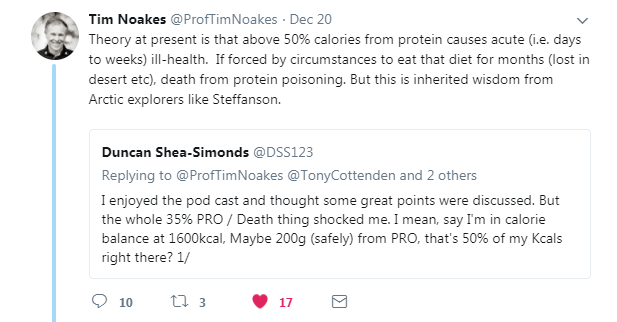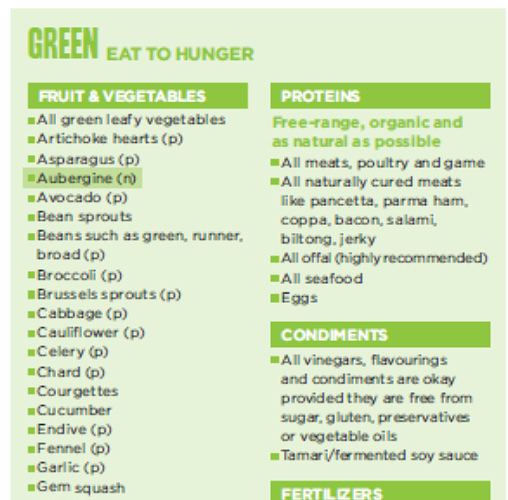Oh yes, I’m starting to see that there are many factors affecting body weight and composition. I guess what I liked about the article is it was a clever way to isolate the factor of dietary protein only on body fat gain and lean mass gain.
Protein will not make you fat, article
You can indeed @April. Great minds think alike. It’s the same one I was linking to that appeared on another thread. 
Interesting read. I don’t follow the keto macros. Most days my macros are 60% fat 35% protein, 5% carbs. I am big on weight lifting but I stay in ketosis most of the time and have lost a lot of fat
“Without this steady supply of amino acids, the body resorts to breaking down its own proteins – typically from muscle – in order to meet this demand.”
Early on, they insert this, and I have to disagree with it - no, it’s not typically from muscle. If and when somebody gets to that state, they are far down the road of starvation, from what I’ve seen.
Agreed, but during the early stages before keto adapted, the brain requires a lot of glucose which it pulls from protein and in the absence of dietary protein, it pulls from muscle. Once keto adapted the brain pulls 60-80% of it’s energy from ketones, but still requires glucose which it generates from protein or muscle through gluconeogenisis. If you are fasting and not ingesting protein, the body will recycle protein as much as possible but most likely borrow a little from muscle. If you fast and are not yet keto adapted, the brain will borrow quite a bit of protein
What does all that mean in real life? I’ve added a great deal of lean mass through eating once a day and fasting. So, I’m inclined to agree with you that the cannibalisation of muscle mass is trivial in the presence of sufficient body fat. At least if you stay keto all the time while experimenting
Mike, that the body will look for energy just about any place it can, if it comes to that, makes sense to me. In the process of getting adapted to keto, I presume you mean that glycogen stores will be gone, thus leaving protein and fat as basically what are left, and if not fat-adapted - or otherwise unable to use fat, then protein will be all there is…?
This has me thinking that once again we see the great benefit that most people are able to get from fasting and autophagy - I can’t see any quicker way to become keto-adapted, and “in the absence of dietary protein” there are all the other protein sources in the body, besides muscle, i.e. damaged/defective cellular components (and potentially harmful protein buildup in cells), and our skin, which after all makes up around 1/6 of our body weight.
People who ate the old Atkins Diet tending to eat quite a bit of protein, right? Didn’t they lose weight? If so, then that is a pretty large N supporting the article.
My non sciency brain thinks the science is equivocal because the effects vary dramatically across individuals. The body of a metabolically healthy muscle head trying to put on weight is not likely to respond the same way as the body of an obese post menopausal woman.
The real question is, does excess protein make you fat?
Excess protein makes you awesome. Might be hard on the kidneys or digestion in really high ratios though. If I recall, that was the problem with atkins
Might be but I’m not so sure… Did Atkins followers really have problems with too high protein intake or was that just the popular wisdom & fear surrounding the diet? 

Prof. Noakes clearly believes that we are designed to burn fat but he seems to acknowledge that the jury may be still out on level of protein intake? (or at least there isn’t a lot of good data out there?)
I do Banting myself & work out a bit (and may need more protein than baseline) so I let my hypothalamus decide my intake rather than calculate.
More then 50% cals from protein would be really hard to do with real foods that people are actually likely to eat. I eat mostly meat and I doubt I’m anywhere near that. IMO Noakes kinda arguing a straw man over the the concern of protein intake. Arctic explorer guy was a weird fringe case.
A lot of chicken and turkey can get you there. Better to throw the chicken in a salad with a lot of olive oil
For sure, bodybuilders probably get there during their pre competition cut, but it’s only a temporary hack. Definitely an unsustainable diet for people, you would have to have no access to fat to pursue it long term.
Good question. The answer may depend on who you ask…& I may not be the best person since I’m a US based practitioner who had to pick up up via podcasts & info on websites rather than from a coach.
Banting (Tim Noakes’s diet) is driven off of color coded lists and is a type of LCHF diet & is mainly popular in South Africa and Oceania.
Green list (low carb / low glycemic load) eat as much as you want to satiety
Orange list (moderate carb/glycemic load) eat a sparingly.
Red list (high carb/glycemic load) don’t eat.
Banting 2.0 has added “light red” (almost never) and “grey” (jury still out items).
Key differences between “Banting” and “Keto”:
Keto is < 20 g carbs / day.
Banting typically states a 25 to 50 g carbs/day range.
Keto diet practitioners are a bit more likely to focus on measuring ketones.
Banting diet practitioners are more likely just to assume they are in ketosis (or close enough) based off of the lists and not sweat it.
My impression is also that there is more emphasis in Banting on the hypothalamus / appestat resetting after processed carbs are removed from the diet. Once that happens, the appestat will tell us what we need to eat (like say more or less protein based off our our needs and activity levels) rather than a calculation based off of our lean body mass (though that is used also for beginners I hear to give them a rough idea before the appestat starts functioning correctly again).





